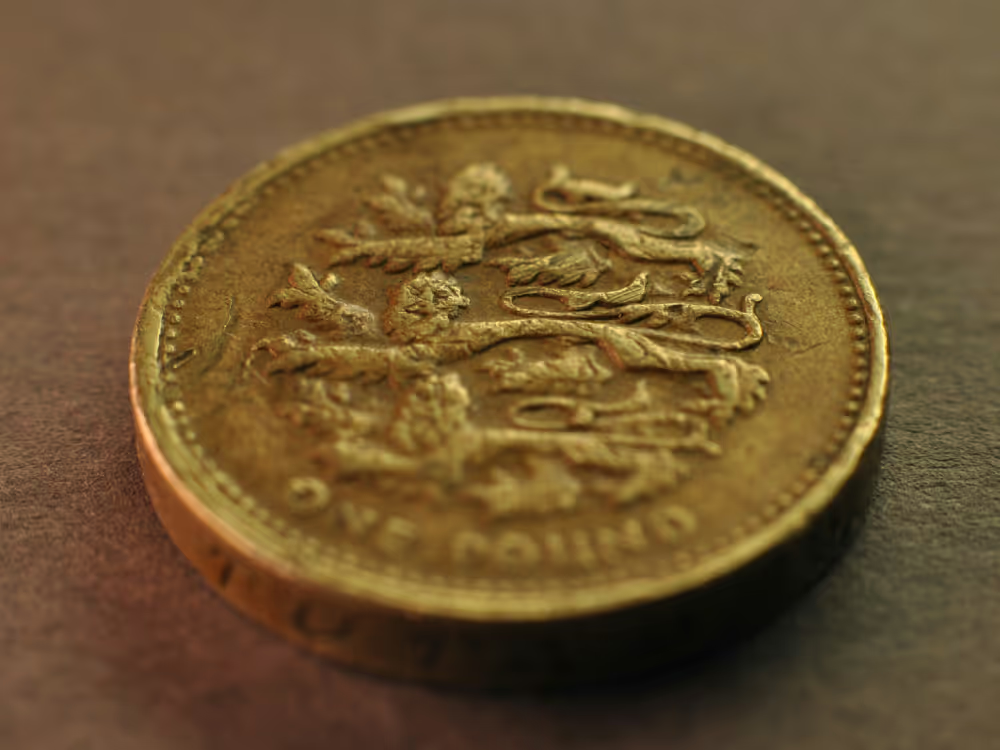The Chancellor of the Exchequer stands proudly outside 11 Downing Street, raises a small red box in the air and heads to Parliament to deliver the Budget, the annual statement setting out the government’s tax and spending plans. Behind the ritual are decades of tradition and a surprising amount of weird history. Budget Day – which was moved from March to Autumn in 2017 by Chancellor Philip Hammond (2016-2019) – has always blended policy with performance. This year will be no different.
Public fiscal announcements go way back. From the 13th century onwards English monarchs needed the common consent of Parliament to raise general taxes, later known as Parliament’s power of the purse. Scuffles between monarchs and subjects over raising revenues without Parliament led to civil war, regicide, and culminated in the 1689 Bill of Rights, which cemented the notion that taxation required parliamentary approval.
After the South Sea Bubble burst in 1720 Britain’s public finances were in bad shape. Thousands were ruined when the South Sea Company's share price plummeted from nearly £1,000 in August 1720 to around £100 by the end of the year. The collapse of the company, which was essentially an underwriter for the national debt, was a systemic risk to state finances and credit. Robert Walpole, considered to be the country’s first de facto prime minister, took on the task of righting the ship. He began presenting Parliament with a detailed account of government income and expenditure. Over time this developed into a formal annual statement.
Little bag
The word Budget comes from bougette, an old French word meaning little bag. From the late-sixteenth century the word was used to refer to the contents of a little bag or wallet, only a short hop and change to refer to a forecast of revenues and expenses for the state. Early chancellors would present their proposals in a small leather pouch, a practice which continued until around 1860 when Chancellor William Ewart Gladstone (1852-55, 1859-66, 1873-74, 1880-82) commissioned the first official ‘Budget box’.
That original box, 14½ by 10 inches, was made of pine, bound in scarlet leather and lined with black satin. The colour came from a longstanding tradition in government of using red leather for ministerial and official cases. The modern box looks almost identical to the 19th century version with its gold tooling, a crown, and the chancellor’s title. Several chancellors used Gladstone’s original box up until 2010, when it was retired.
The original box was repaired many times. Its edges were reinforced with metal bands and its interior satin lining was replaced more than once. While Gladstone’s box is the most famous, Jim Callaghan (1964-67) famously used a “vulgar brown valise” in 1965, making him the first chancellor to break the red box tradition entirely. He is also the only person to hold all four Great Offices of State.
Raise the box
The monarch is the first to be informed of the Budget outline and the Cabinet is presented with the details on the morning of. The chancellor sits on the front bench to deliver the speech while the Speaker of the House vacates the chair for the Deputy Speaker, also known as the Chairman of Ways and Means.
The proposals become law through the Finance Bill. Any tax changes, such as ‘sin taxes’ on items like alcohol and tobacco, announced on the day can come into effect from 6pm. This is made possible by the House of Commons passing a single Provisional Collection of Taxes motion under the Provisional Collection of Taxes Act 1968.
All tax measures announced are consolidated into a single Finance Bill, which goes through parliament to receive Royal Assent and become a permanent Finance Act. The Finance Bill must receive its second reading within 30 sitting days of the resolutions being passed and become law within seven months. All of the above is described by the House of Commons Library as a fiscal event, a term that covers full Budgets, Autumn Statements and any major updates in between.
Raise a glass
Another longstanding rule is the chancellor is the only MP permitted to consume alcohol in the Commons chamber – while giving the speech. Previous chancellors have chosen whisky (Glenfarclas for Kenneth Clarke), gin and tonic (Geoffrey Howe), brandy and water (Benjamin Disraeli), and sherry and beaten egg (William Ewart Gladstone).
Nigel Lawson (1983-89) varied his drinks from year to year. They included Ashbourne Water and a mixture of wine and Malvern water. In 1993 Norman Lamont (1990-93) chose an Orcadian mineral water as well as a wee nip of Scotch. Gordon Brown (1997-2007) chose Highland Spring mineral water for his first Budget in July 1997.
Goofs and gaffes
The longest continuous Budget speech was by William Gladstone on 18 April 1853, lasting 4 hours and 45 minutes. Benjamin Disraeli's (1852, 1858-59, 1866-68) speech in 1852 lasted 5 hours but included a break, arguably the longest on record. Funnily enough, the shortest was by the same chancellor, in 1867, which lasted only 45 minutes.
With twelve Budget speeches (thanks to his four stints), Gladstone holds the record for delivering more Budget speeches than any other chancellor. Gladstone insisted on preparing his budgets with meticulous notes but delivered them by memory. In 1868, Chancellor George Ward Hunt (1868) forgot his speech at home and had to improvise. He was out after just six months.
Certain Budgets have become infamous. The People’s Budget of 1909 under David Lloyd George (1908-15) introduced significant taxes on land and unearned income and triggered a constitutional crisis when the House of Lords rejected it. The showdown led to the Parliament Act 1911, which curtailed the power of the Lords.
For much of the 20th century, chancellors were expected to disappear for weeks before the Budget. Leaks or even hints were considered a breach of good practice, what Ken Clarke (1993-97) recently called a “hanging offence”. In 1947, Hugh Dalton (1945-47) inadvertently briefed a reporter moments before entering the Chamber. When The Times printed the details of the Budget before he had finished speaking, Dalton resigned that evening.
And of course there was the 2022 Kwasi Kwarteng (2022) mini-Budget, which included a number of unfunded tax cuts, such as a cut to the basic rate of income tax and the scrapping of the top rate. The mini-budget led to a fall in the value of the pound and increased borrowing costs. Subsequently dismissed by Prime Minister Liz Truss, Kwarteng’s brief tenure makes him the second-shortest serving chancellor in British history after Iain Macleod, who died after 30 days in office in 1970.
Making history
Other Budgets have collided with major national and global events. During The Great Depression, in 1931, a package of emergency cuts outlined by Philip Snowden (1924, 1929-1931) prompted a massive run on sterling, forcing Britain off the gold standard.
The 1972 Anthony Barber Budget’s (1970-74) aggressive expansionary policies, known as the dash for growth, over-stimulated the economy, leading to a massive inflationary boom, widespread industrial unrest, and the Three-Day Week.
Geoffrey Howe's (1979-83) 1981 Budget, amid a deep economic recession coupled with high unemployment, implemented severe deflationary measures and tax increases. This prompted 364 academic economists to publish a letter in The Times arguing there was “no basis in economic theory or supporting evidence” for the government's strategy.
Howe's 1981 Budget led to an intensification of the recession plaguing the country, a sharp rise in unemployment, and significant issues for the manufacturing sector in the short term. But in the medium to long term, the measures were credited with tackling inflation and establishing a new economic framework that prioritised price stability over full employment.
While the Beveridge Report of 1942 wasn’t a Budget, its blueprint for the welfare state meant successive chancellors had to design post-war Budgets around funding the NHS and other welfare measures. Similarly consequential, the 1997 and 1998 Brown Budgets introduced tax credits and created the foundation for Bank of England independence.
Future tense
Once a year, the entire fiscal strategy of the country is channeled through an hour-long speech. Theatrical and ceremonial, it’s all very Victorian and somewhat at odds with a modern economy.
Over the years, other countries have adopted a different approach. Sweden debates its Budget openly in parliament before it’s finalised. New Zealand sets out its economic strategy and tax policy months in advance. Ireland, Australia, and Canada publish drafts of tax proposals so the public can scrutinise them before the government commits. Britain still builds its fiscal calendar around an afternoon in the Commons, the locked red box an apt metaphor for the lack of transparency.
Some former mandarins and Cabinet Office veterans now think the Treasury is too centralised, its annual ritual shoehorning ministers into short-term thinking rather than long-term strategy. Senior former officials have argued the Treasury should be broken up with spending decisions moved closer to No. 10.
But the idea to shift economic strategy to the centre and leave the chancellor to focus on taxation and macro policy has never materialised, not least because nobody has been able to wrest tax and spend from the chancellor’s iron fist.
As recent months have shown, even a rumour of a reversal can move gilt yields by billions. The old ways of secrecy and surprise now sit awkwardly, hemmed in by markets and the beady eyes of bond vigilantes. Current Chancellor Rachel Reeves (2024-), the first woman to hold the title, has broken with tradition and been highly visible, even giving a ‘scene-setting’ speech in early November and ‘kite flying’ ideas to test support before committing to a proposal.
The Budget survives partly because Britain likes its traditions. It’s a moment of national attention that no other system quite replicates. Other countries have shown fiscal strategy doesn’t have to be squeezed into a single, high stakes performance. But for now the Budget remains what it has always been, a marriage of economics and theatre. Perhaps the drama is the point.
Important Information
This should not be read as personal investment advice and individual investors should make their own decisions or seek independent advice. This article has not been prepared in accordance with legal requirements designed to promote the independence of investment research and is considered a marketing communication.When you invest, your capital is at risk. The value of your portfolio can go down as well as up and you may get back less than you invest. Past performance is not a reliable indicator of future results.Freetrade is a trading name of Freetrade Limited, which is a member firm of the London Stock Exchange and is authorised and regulated by the Financial Conduct Authority. Registered in England and Wales (no. 09797821).







.avif)
.avif)




